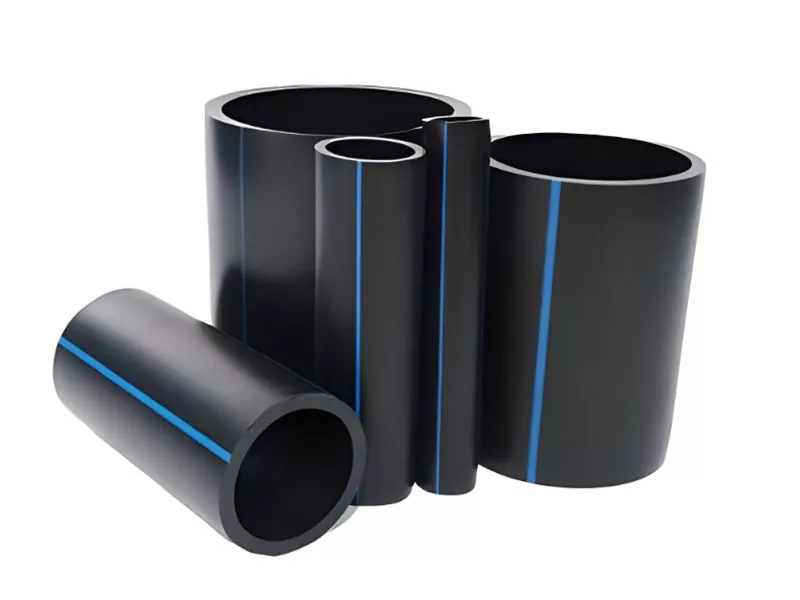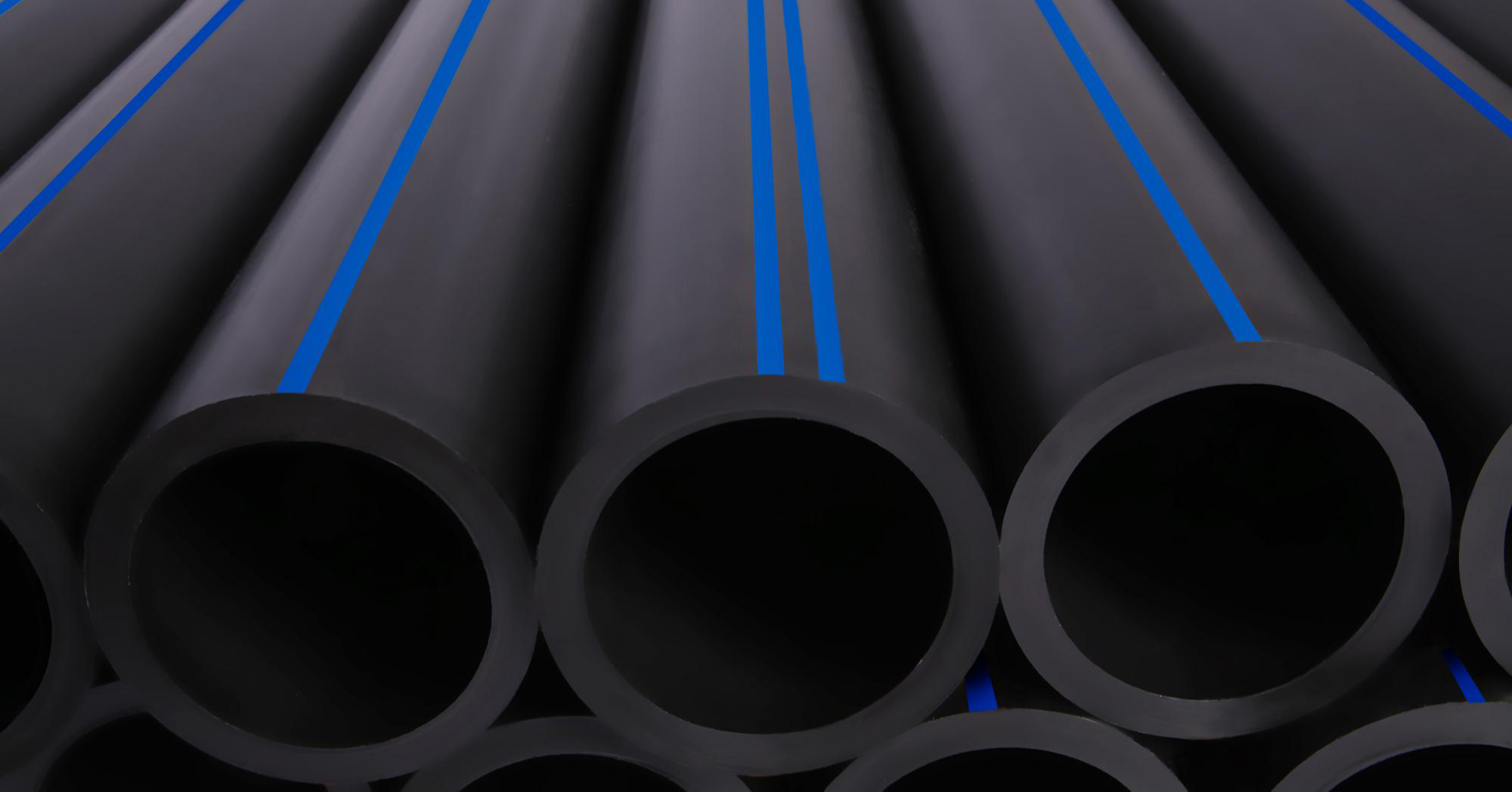Understanding the Trick Conveniences of HDPE Pipeline for Water and Wastewater Monitoring
Making use of HDPE pipe in water and wastewater administration offers many benefits that warrant factor to consider. Its remarkable sturdiness and lengthy lifespan make it a preferred choice for several tasks. Additionally, the material's resistance to deterioration and chemical damage boosts its reliability in numerous atmospheres. The benefits prolong beyond just long life and resistance. Pipe Manufacturing Midland TX. Exploring its cost-effectiveness and ecological impact reveals much more compelling reasons for its widespread fostering in contemporary infrastructure
Remarkable Durability and Long Life

HDPE pipeline stands apart for its remarkable durability and long life, making it a favored option in water monitoring systems. Built from high-density polyethylene, these pipelines can endure substantial stress and stress and anxiety, making certain reliable performance over time. Their robust nature enables them to sustain severe environmental problems, consisting of temperature level changes and soil movements, which can cause other products to stop working.
The lifespan of HDPE pipes frequently surpasses half a century, offering an economical remedy for communities and sectors alike. Furthermore, the material's light-weight homes streamline installment, reducing labor expenses and timeframes. This durability minimizes the demand for constant fixings or substitutes, even more improving its financial appeal.
In water management applications, the reliability of HDPE pipelines implies less disturbances and boosted service connection, making them important to lasting infrastructure development. The mix of sturdiness and long life solidifies HDPE's function as a foundation in effective water management solutions.

Resistance to Deterioration and Chemical Damages
While numerous materials yield to corrosion and chemical damage over time, HDPE pipes display impressive resistance, making them suitable for different water monitoring applications. This resilience comes from the molecular structure of high-density polyethylene, which is inherently non-reactive and does not corrode like metals or deteriorate from direct exposure to harsh chemicals. Consequently, HDPE is highly effective in atmospheres with aggressive substances, such as wastewater systems that may have acids, bases, and natural solvents.
Additionally, HDPE pipes can stand up to ecological factors such as dirt acidity and saline problems, even more improving their suitability for varied applications (hdpe pipe in stock Midland TX). Their capacity to preserve architectural honesty in time reduces the risk of leakages and failings, which is critical in making sure the security and reliability of water circulation and wastewater monitoring systems. The resistance to rust and chemical damage noticeably contributes to the overall effectiveness and long life of HDPE piping remedies.
Cost-Effectiveness and Economic Advantages
When thinking about the economic implications of water administration systems, the cost-effectiveness of HDPE pipes becomes noticeable. These pipes use reduced setup and maintenance prices contrasted to conventional materials like steel or concrete. Their light-weight nature streamlines transport and installation, resulting in decreased labor expenditures. Furthermore, HDPE pipelines display a long lifespan, usually exceeding half a century, which equates to fewer substitutes and long-term savings.
The resistance of HDPE to rust and chemical damage reduces the requirement for pricey repairs and substitutes. The pipes likewise sustain reliable water flow, decreasing energy expenses connected with pumping systems. By mitigating leakages and water loss, HDPE pipelines add to substantial economic benefits for towns and sectors alike. On the whole, the preliminary investment in HDPE piping can generate considerable economic returns over the lifespan of the water management system, making it a prudent selection for sustainable facilities advancement.
Environmental Sustainability and Decreased Influence

Convenience and Flexibility in Setup
Due to their special homes, HDPE pipelines use remarkable convenience and versatility in installation, making them suitable for a wide variety of applications. Their lightweight nature allows for less complicated handling and transportation, reducing labor prices and installation time. HDPE pipelines can be bent and shaped to fit numerous terrains and project needs, which is specifically useful click here in testing atmospheres.
Additionally, their resistance to corrosion and chemical damage permits setup in varied settings without the requirement for specialized safety coverings. The ability to fuse joints develops a continuous, leak-free system, improving the overall integrity and dependability of the installment. HDPE's adaptability likewise suits ground motion, reducing the threat of damage in areas vulnerable to changing dirt. On the whole, these characteristics make HDPE pipes not just versatile however additionally a recommended selection for water and wastewater monitoring systems.
Regularly Asked Inquiries
Just How Does HDPE Pipe Contrast to PVC in Water Monitoring Applications?
HDPE pipe uses exceptional adaptability, resistance to corrosion, and resilience compared to PVC. Its lighter weight promotes less complicated installment, while its lengthy life expectancy minimizes substitute prices, making HDPE a recommended option in water administration applications.
What Is the Life-span of HDPE Piping Under Typical Problems?
Under regular conditions, HDPE pipelines can have a life expectancy ranging from 50 to 100 years. Their longevity and resistance to corrosion add to their long-term performance in numerous applications, making them a dependable selection for facilities.
Are HDPE Pipeline Recyclable After Their Service Life?
Yes, HDPE pipes are recyclable after their life span. Pipe Supplier American Plastics Midland. They can be processed and repurposed into new items, substantially lowering ecological impact and advertising sustainability within the market, making them an environmentally friendly option for piping solutions
What Is the Installment Process for HDPE Water Lines?
The setup process for HDPE pipelines involves website prep work, trenching, pipeline fusion or mechanical signing up with, backfilling, and pressure screening. Proper methods assure a resilient and efficient system for carrying water and wastewater successfully.
Can HDPE Pipeline Be Utilized for Both Drinkable and Non-Potable Water Systems?
Yes, HDPE pipelines can be utilized for both safe and clean and non-potable water systems. Their adaptability, sturdiness, and resistance to rust make them suitable for various applications, making certain risk-free and reliable transport of water in various contexts.